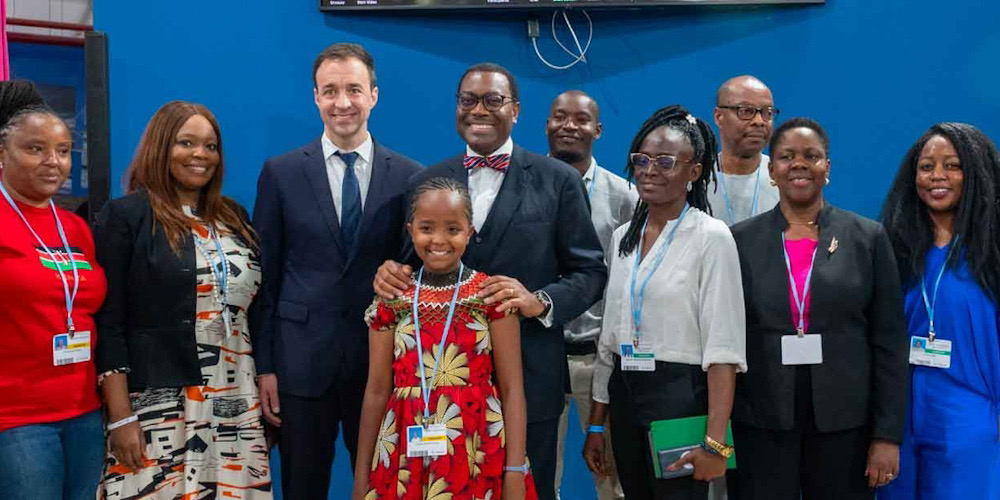The winners of the African Youth Adaptation Solutions Challenge (YouthADAPT Challenge) were announced on Thursday, November 10 in a ceremony held at the sidelines of COP27 at the Africa Pavilion in Sharm El Sheikh.
Twenty youth-led enterprises, were recognized for their efforts in offering innovative solutions in climate change adaptation and resilience across Africa.
The winners will be part of a 1-year accelerator program, which will provide, $100,000 grant funding, Capacity Building Training, Mentorship and Coaching.
The challenge was jointly organized by the African Development Bank, the Global Center on Adaptation and the Climate Investment Funds (CIF) to boost sustainable job creation through support for entrepreneurship and youth-led innovation in climate change adaptation and resilience across Africa.
Here are the female founders who emerged winners.
Yvette Ishimwe (Rwanda)
IRIBA Water Group Ltd offers an adaptation solution for floods by collecting rainwater from the roofs of houses, purifying it, and then distributing it to young women.
Anna Ngwenyi Mafor (Cameroon)
Multi-Tech Sustainable Solutions (MTTS) uses smart technology for the early detection of crop diseases mostly caused by climate change.
Esther Kimani (Kenya)
Farmer Lifeline Technologies reduces greenhouse gas emissions from synthetic fertilizers and farm chemicals by creating more environment-friendly versions.
Joyce Sikwese (Malawi)
Green Impact Technologies accelerates the productive use of climate-smart agriculture technologies and organic fertilizers among smallholder farmers.
Maryanne Gichanga (Kenya)
Agritech Analytics uses satellite data analytics and Internet of Things (IoT) sensors to halt and reverse soil degradation, crop pests and diseases.
Mmakwena Moesi (Botswana)
Viva Organica improves soil moisture and overall soil health affected by climate change.
Olowoseunre Oluwadamilola (Nigeria) Pazelgreen Technologies’ sustainable and cost-effective industrial cooling process addresses the problem of post-harvest loss of fruits and vegetables caused by climate change.
Rebecca Andeshi (Nigeria)
Grocircular Agro Services produces organic fertilizer generated from poultry waste, food waste, rice husks and wood chips.
Rita Idehai (Nigeria)
Ecobarter improves adaptive capacity to flash floods by keeping drainages and streets free of waste.
Reham Yehia (Egypt)
Baramoda reduces CO2 emissions by decreasing the use of chemical fertilizers, which helps soil affected by climate change to recover.
Rose Noah (Ghana)
West African Feeds leverages tropical insect farming techniques to convert food waste into climate shock-resistant food alternatives for Africa’s livestock feed industry.

